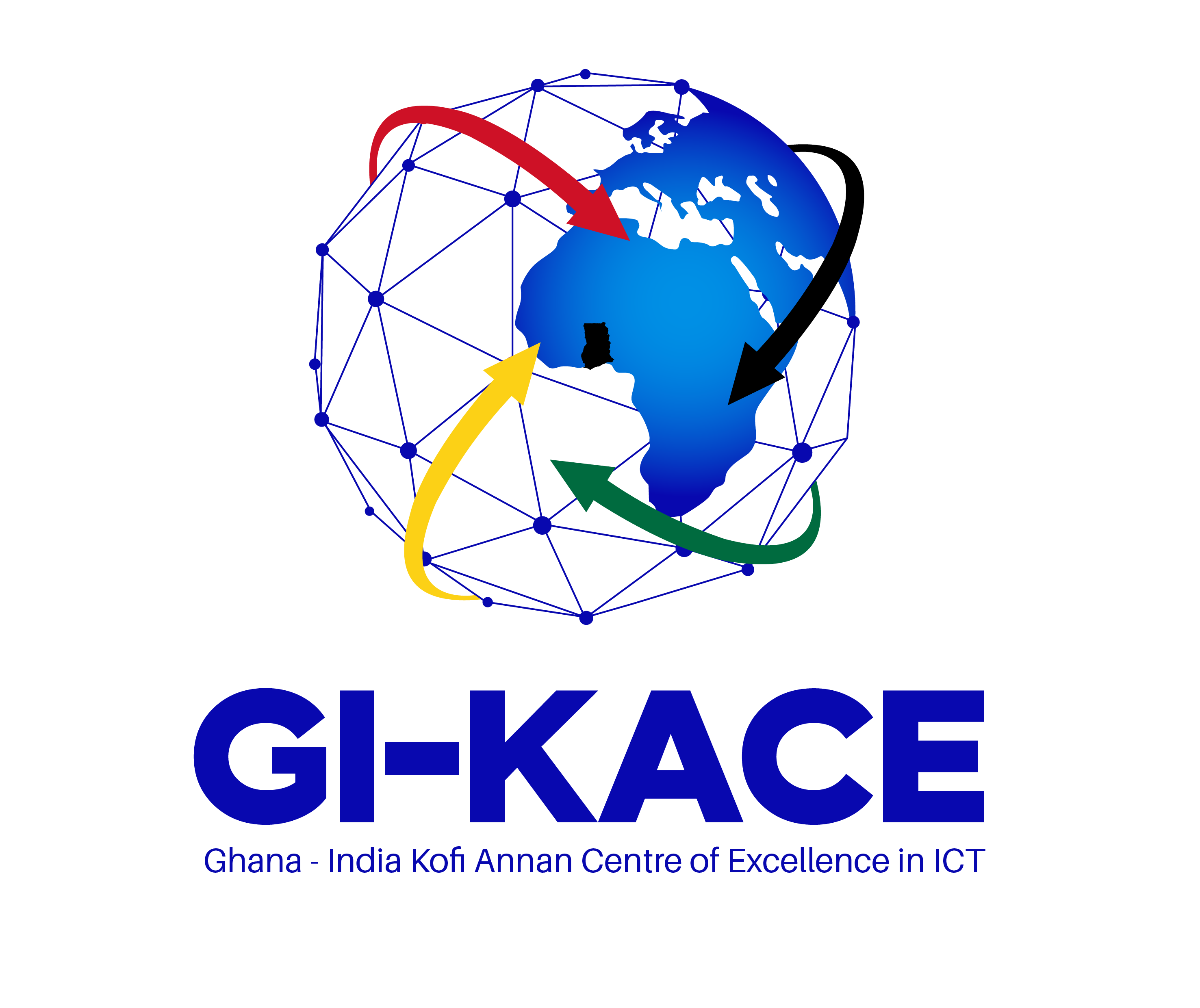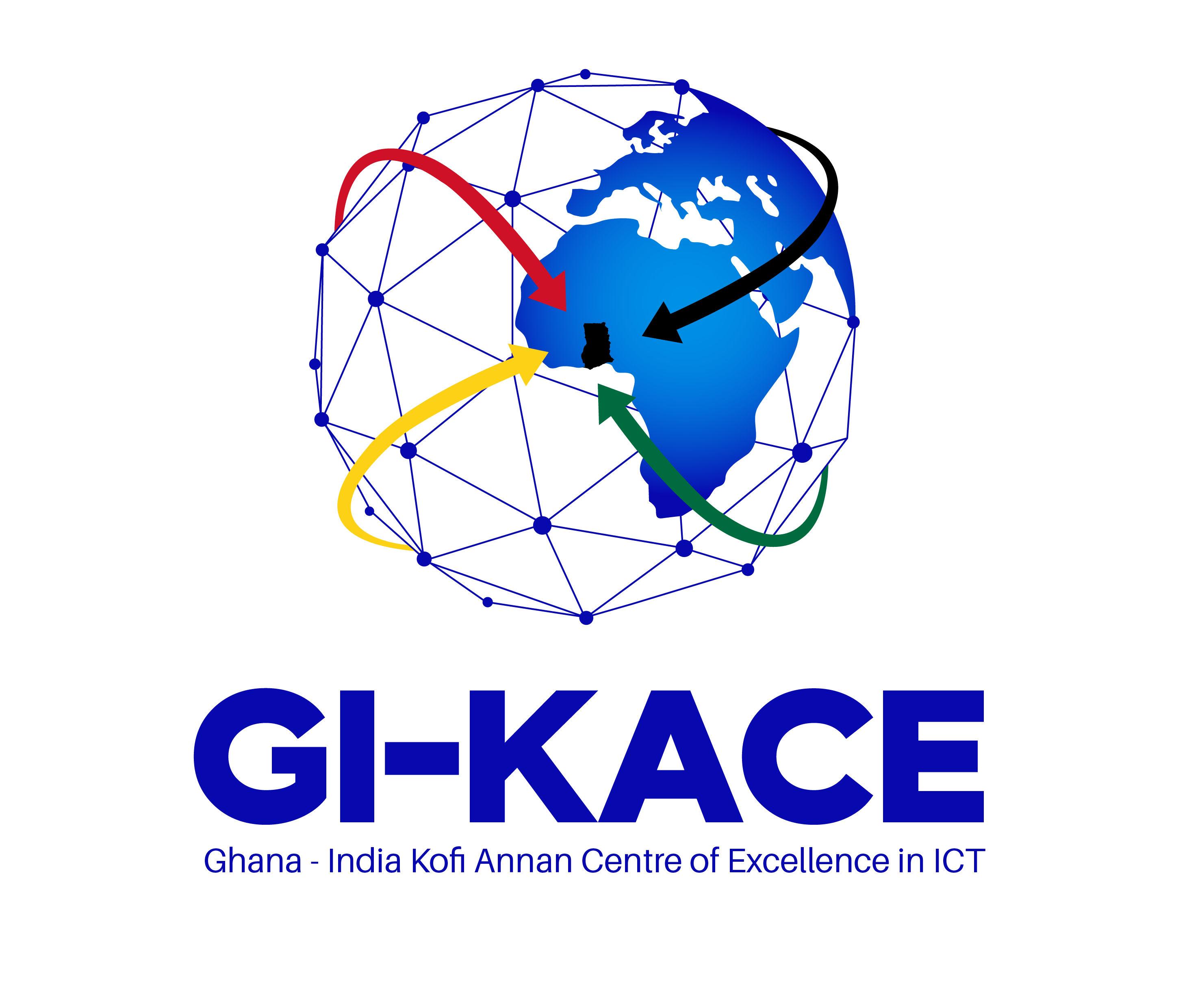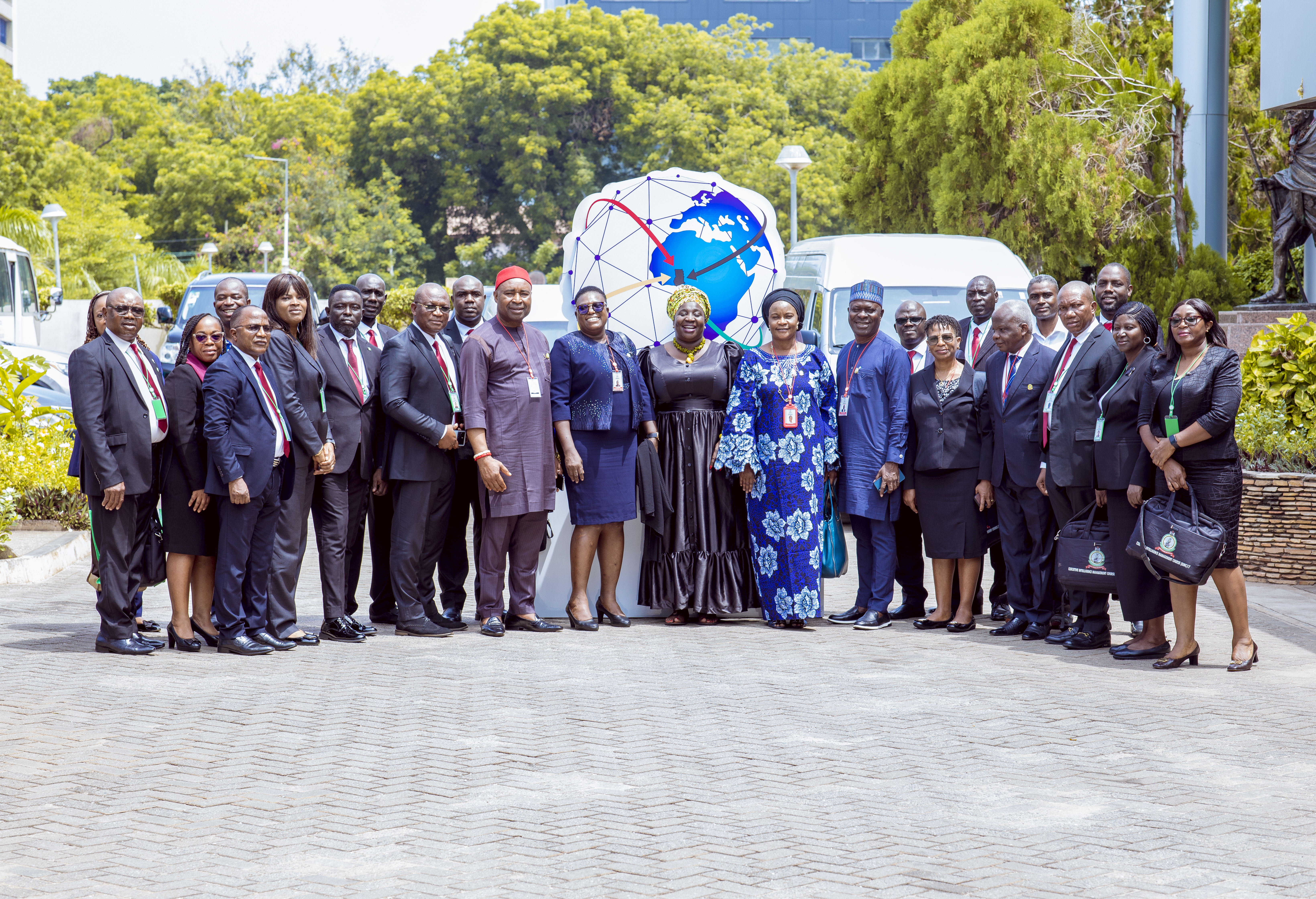A delegation from the National Institute for Security Studies (NISS) in Abuja, Nigeria, has paid a courtesy call to the Ghana-India Kofi Annan Centre of Excellence in ICT (GI-KACE) to learn about the transformative potential of AI in emerging economies.
Speaking at the gathering, the Director of Corporate Affairs at GI-KACE, Kobi Hemaa Osisiadan-Bekoe introduced the core values of GI-KACE to the delegation focusing on the necessity to train and retrain professionals to keep up with the rapid advancements in AI and ICT, aiming to improve public service delivery and provide better education through personalized learning.
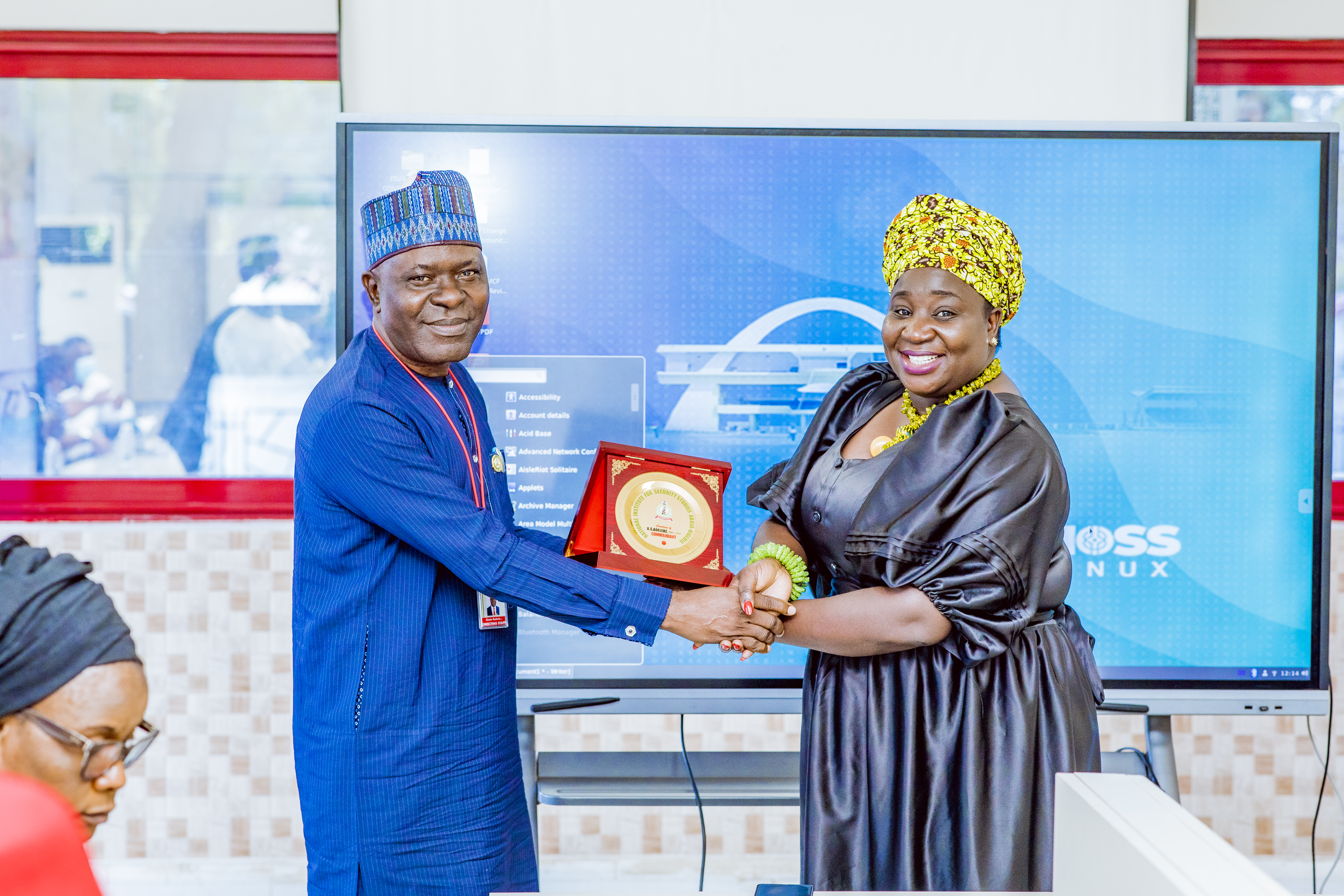
The Director of Studies for GI-KACE, Dr. Yaw Okraku-Yirenkyi in his submission discussed the challenges and opportunities surrounding the adoption of AI in the African context.
He highlighted two factors that have hindered the widespread adoption of AI, being the lack of large datasets and insufficient computing power. He also noted that AI is already making significant impacts in various sectors, including finance, education, healthcare, security, and e-commerce.
Frederick Yeboah, Director of Research and Innovation for GI-KACE, shared insights on the AI-powered applications being developed at GI-KACE, including the upcoming launch of a locally developed drone by the end of the year and the introduction of an asset tracking system in September.
A senior faculty member of GI-KACE, Haruna Balle Baz Musah, spoke about how the use of Artificial Intelligence (AI) in medicine has the potential to transform the way medical professionals diagnose and treat patients.
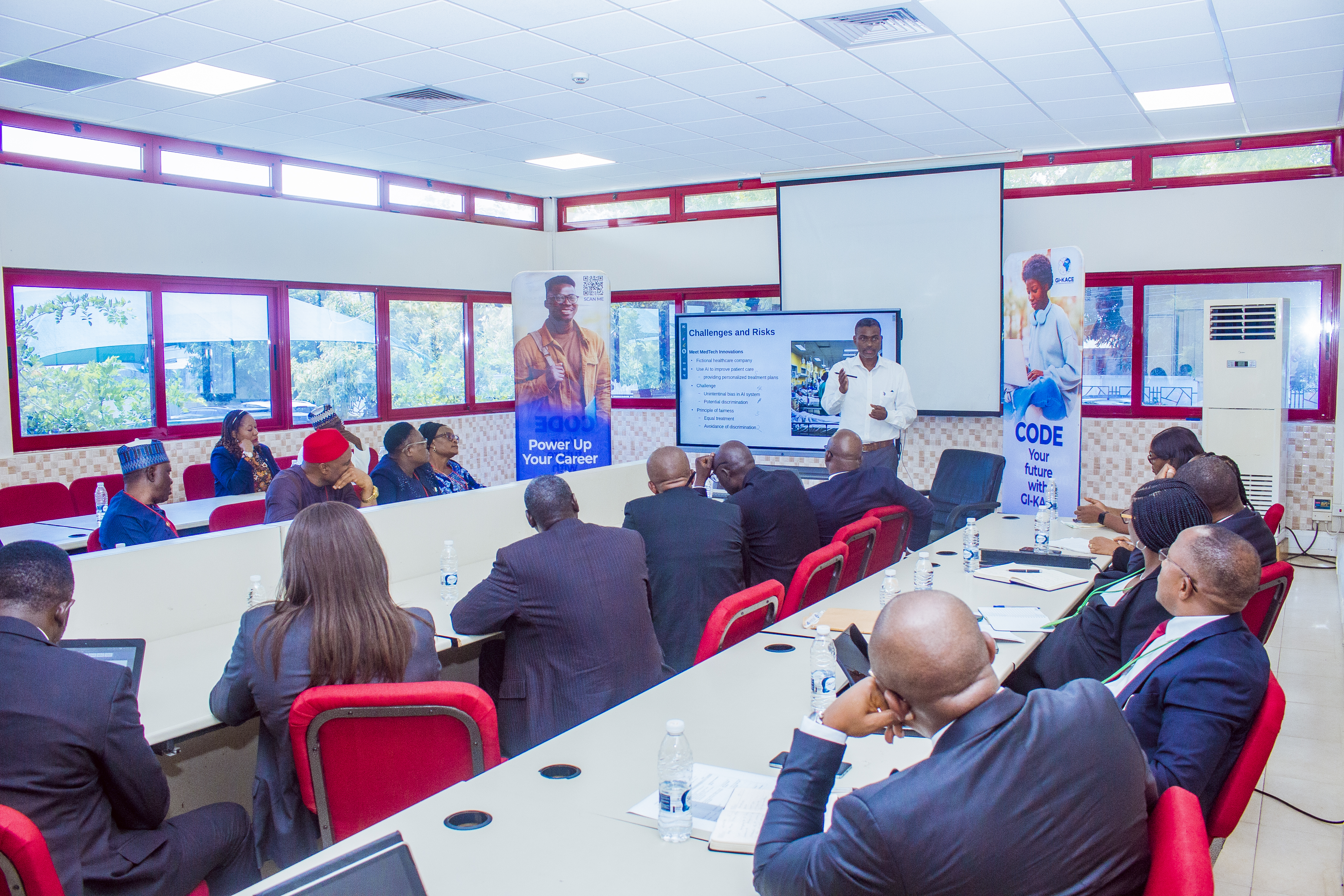
He indicated that, with the ability to process and analyze vast amounts of data, AI can help medical professionals identify patterns and trends that may not be immediately apparent to the human eye.
“One of the ways AI is being used to improve workflow in medicine is through the analysis of large data sets and this can lead to faster and more accurate diagnoses, as well as more personalized treatment plans for patients,” he emphasized.
Christopher Kegu, a senior member of faculty at GI-KACE, stressed the position that Ghana holds as the second-largest producer of cocoa and how AI can be used to enhance productivity and quality in the sector.
According to him, focusing on research and the development of ICT capabilities will harness the power of AI and Machine Learning (ML) to drive innovation and development across the African continent, ensuring that technology serves as a catalyst for sustainable growth and improved quality of life.
The delegates affirmed the challenges and risks associated with AI, stating that it is important to concentrate on the principle of accountability to ensure the ethical and responsible use of technology. They acknowledged the resistance to embracing local AI solutions and stressed the importance of building digital infrastructure and access to support the Sustainable Development Goals (SDGs).
Esther Emiloye Oyeyele, the Team Lead of the NISS delegation, and Olayemi Foluke Arigbede, the Syndicate Supervisor, expressed their appreciation for the insights and hospitality at GI-KACE.
